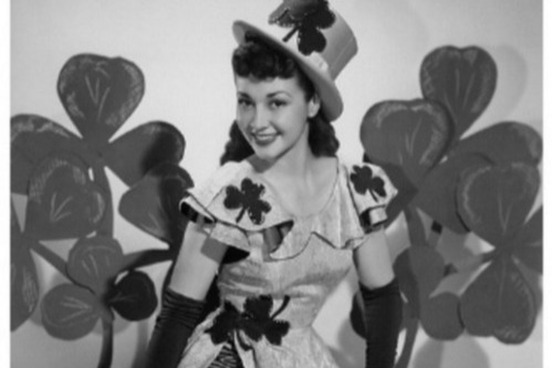
Acushla
Follow your heart, acushla! 'Tis a safer guide than any promise before you knew what it was that you were saying.
—Arthur Conan Doyle, The Valley of Fear, 1915
Acushla comes from the Irish Gaelic cuisle, which can mean "darling" but more literally means "pulse" or "vein." It's an adaptation of the Irish Gaelic a cuisle ("oh darling"). Cuisle was sometimes also paired with ma to give us macushla ("my darling"), as well as our next term of endearment....
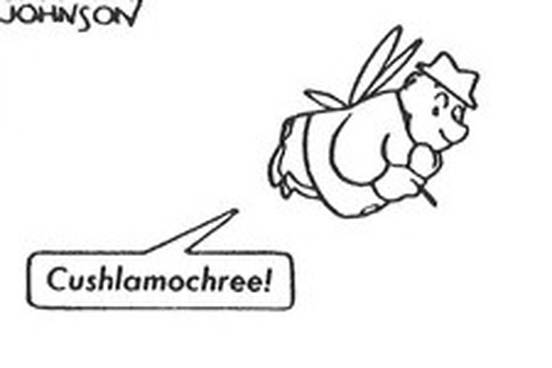
Cushlamachree
'Twas they tempted Connor over the sea
And I lost my lover, my cushla machree."
—Anonymous, "My Connor" in The Dublin Book of Irish Verse, 1728-1909, ed. John Cooke, 1909
The word that gave us acushla and macushla, cushlamachree is an adaptation of the Irish Gaelic cuisle mo chroidhe, literally, "vein of my heart." It's a lovely, poetic way to refer to your sweetheart—and, indeed, in shows up mostly in Irish folk songs and poetry.
Cushlamochree, a variant spelling, also appeared as an exclamation of surprise or frustration in the 1940's comic strip "Barnaby," written by Crockett Johnson. (If you recognize his name, that's because Crockett Johnson also wrote and illustrated the children's classic, Harold and the Purple Crayon.)
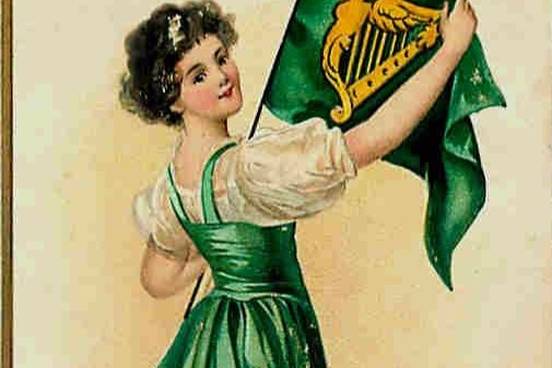
Agra
...he went to the fox's den with about a pound of good wool, which he threw in and thus addressed him in Irish: "Fox agra, let's be good friends, and do avick let my lambs alone. Here's some wool to make mittens for your young ones, and I will be their gossip, and will ever and always be a good neighbour to you."
—"Sketches in Eddis and Tyrawly," in Tait's Edinburgh Magazine, August 1841
Agra stems ultimately from the Irish Gaelic grādh, which means "love" and is a distant cousin of the Latin word gratus, which means "beloved" or "dear." Agra is one of our older "sweetheart" words, dating back to 1645, and a linguistic reminder that Ireland was a crossroads of sorts for much of its history. Ireland has been visited or colonized by Romans, Vikings, Normans, Scots, and the English, in addition to being home to the Celts and Irish.

Asthore
Dusk, a pearl-grey river, o’er
Hill and vale puts out the day—
What do you wonder at, asthore,
What’s away in yonder grey?
—George William Russell, "Twilight by the Cabin," 1913
Many of the Irish Gaelic terms for affection, like asthore, came into prominent use during the Irish literary renaissance of the 20th century. The use of Irish Gaelic was actively discouraged or suppressed by the British during the 17th-19th centuries, and when this suppression officially ended at the end of the 1800s, general interest in Irish identity and a strong sense of Irish nationalism led to the flourishing of both Irish fiction and verse, as well as renewed interest in Irish Gaelic.
Asthore is one word that came into prominent use during the Irish literary renaissance. It stems from the Gaelic word stōr, which means "treasure."
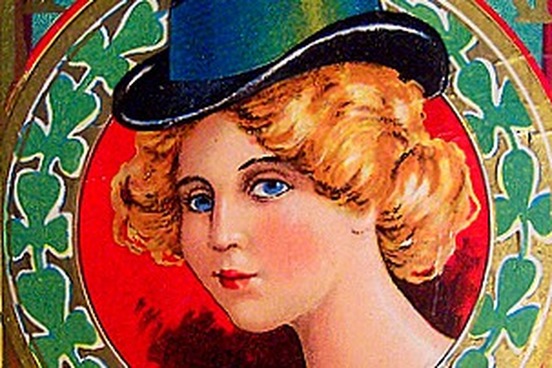
Mavourneen
Come around to Barney Kiernan's, says Joe. I want to see the citizen.
Barney mavourneen's be it, says I.
—James Joyce, Ulysses, 1922
Mavourneen stems from the Irish Gaelic muirnīn. Muirnīn means "darling" and it's found in medieval Irish, where it is the diminutive form of the word mūirn, "joy." You may think that mūirn looks an awful lot like the name Maureen, but there's no etymological link between the two. The name Maureen is likely from the Irish name Máirín, which is the Irish diminutive form of Mary (sometimes spelled Máire in Irish).
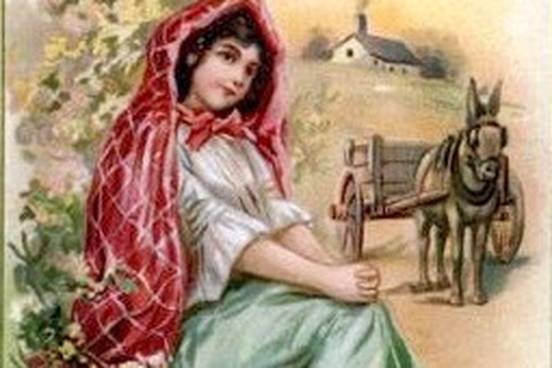
Storeen
She spread out her arms to me. I went to her and she hugged me and rocked me as she did when I was only a nipper. "Oh, oh, oh," she was saying to herself in a whisper, "my storeen bawn, my little man"—all the names she hadn't called me in years.
—Frank O'Connor, "The Babes in the Woods," in The New Yorker, 8 March 1947
Storeen, like mavourneen, features an Irish diminutive—the suffix "-een," which is an anglicization of the Irish Gaelic -īn. "Storeen" literally translates as "little treasure," but the diminutive doesn't necessarily connote love or affection. -Een shows up in other Irish words, like boneen ("a young pig"), boreen ("a narrow or small country lane"), dudeen ("a short tobacco pipe made of clay"), and, of course, colleen.

This is how the Irish insult people
Learn 6 Irish words for people you don't like very much
SEE THE LIST >





